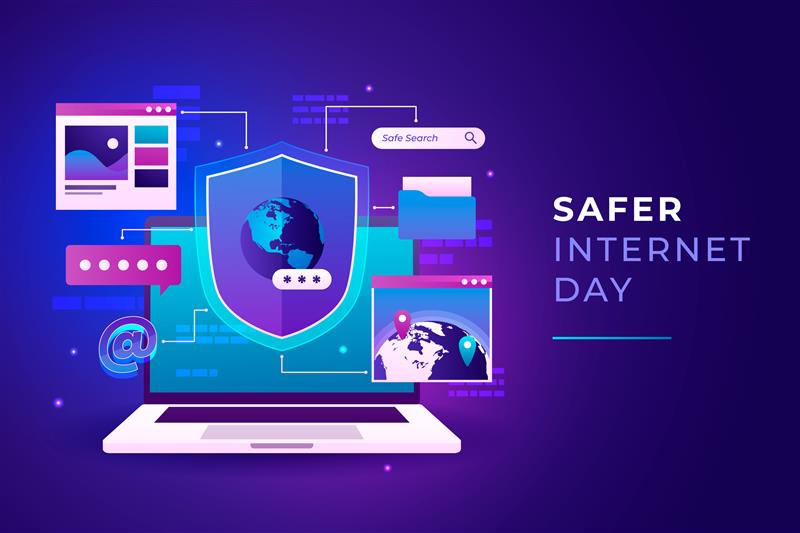
The theme for this month continues on Internet Security. Cyber awareness is crucial in today’s digital age, as it helps individuals and organizations protect themselves from various cyber threats. The need to make more informed decisions when using technology is imperative.
In both understanding cyber threats and being aware of the different types of cyber threats, such as phishing, malware, ransomware, and social engineering are the first steps in protecting yourself and the organisations data.
Let us look at the following tips:
Social Media Privacy: Control Your Digital Footprint
Oversharing on social media can lead to identity theft and other security risks. Threat actors (individuals or groups that intentionally cause harm to digital devices or systems) can find valuable information online that can aid in their attacks.
- Review Privacy Settings: Ensure your profiles are set to private and review who can see your posts.
- Be Cautious with Personal Information: Avoid sharing sensitive information such as your address, phone number, or financial details.
- Think Before You Post: Remember that even private posts can be shared or hacked.
- Regularly review and update your privacy settings to match your current preferences.
Passwords: Your First Line of Defence
Passwords are the gateway to your personal and professional information. Weak passwords can be easily guessed or cracked by cybercriminals.
How to Create a Strong Password:
- Length: Aim for at least 12 characters.
- Complexity: Use a mix of upper- and lower-case letters, numbers, and special characters.
- Uniqueness: Avoid using the same password for multiple accounts.
- Passphrases: Consider using a passphrase made up of unrelated words for added security. Be Creative
Phishing Scams: Don’t Take the Bait
Phishing is a tactic used by cybercriminals to deceive you into revealing sensitive information by pretending to be a trustworthy entity. To recap what we previously have learnt:
- Suspicious Links: Hover over links before clicking to ensure they lead to legitimate websites.
- Urgent Language: Be wary of emails or messages that create a sense of urgency or pressure you to act quickly.
- Unexpected Attachments: Don’t open attachments from unknown sources.
What to Do If You Suspect Phishing?
- Report the Incident.
- Delete the suspicious communication.
Software Updates: The Importance of Keeping Up
- Why Updates Matter? Software updates often include security patches that fix vulnerabilities. Neglecting updates can leave your devices exposed to malware and other threats.
- How to Ensure You’re Up-to-Date? Enable Automatic Updates: Most operating systems and applications offer an automatic update feature.
- Regular Checks: If automatic updates aren’t available, regularly check for updates manually.
- Keep your operating system, antivirus software, and applications updated to protect against the latest threats.
Cybersecurity definitions from the Directive on Public Service Information Security
- ‘Computer Security’ means– that condition created in a computer environment by the conscious provision and application of security measures. This includes information concerning the procedure for the procurement and protection of equipment;
- ‘Information Security’ means the provision of organisational, technical, and social measures to safeguard information assets against unauthorised access, damage, and interference – both malicious and accidental;
- ‘Information Security Event’ means an identified occurrence of a system, service, or network state indicating a breach of information security policy, failure of safeguards, or a previously unknown situation that may be security-relevant;
- ‘Information Security Incident’ means a single or a series of unwanted or unexpected information security events that have a significant probability of compromising business operations and threatening information security.
Stay Vigilant, Stay Safe
- Cybersecurity is an ongoing process. By staying informed and proactive, you can significantly reduce your risk of falling victim to online threats. Remember, your security is ever users responsibility.
